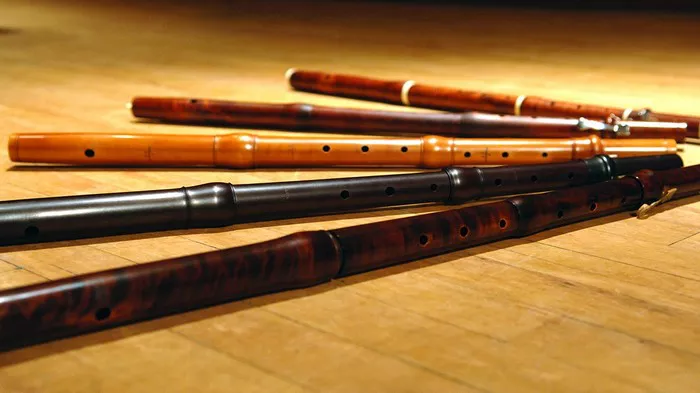Choosing the right flute can significantly impact your learning experience, especially if you are a beginner. The ease of playing a flute depends on various factors, including its design, material, and features. This article explores different types of flutes, features that contribute to ease of play, and recommendations for beginners. We also cover essential tips for learning the flute and additional resources to support your musical journey.
Types of Flutes
Concert Flute
The concert flute, also known as the C flute, is the most common type of flute and is often considered the standard beginner flute. It is made of metal and typically features a cylindrical body with a series of keys. The concert flute is known for its clear, bright sound and is widely used in orchestras, bands, and solo performances.
Curved or Straight Head Closed Hole C Flute
Curved and straight head closed hole C flutes are known for being easier to play, especially for beginners. The closed hole design means that the tone holes are covered by pads, which can make it easier to produce a clear sound and maintain proper embouchure. The curved head joint, specifically designed for younger players, makes it easier for small hands to reach the keys and achieve a comfortable playing posture.
Nuvo Toot Flute
The Nuvo Toot flute is an excellent option for young children and beginners. It is designed to be lightweight and has a simplified key system, making it easier for young players to manage. Made from plastic, the Nuvo Toot flute is durable and affordable, which is ideal for young learners who are just starting their musical journey.
Recorder and Ocarina
Though not traditional flutes, recorders and ocarinas are worth mentioning as some of the easiest wind instruments to play. Recorders are simple to handle, have a straightforward finger placement, and are often used as introductory instruments in schools. Ocarinas, with their unique, egg-shaped design, also offer an easy learning curve due to their simple fingerings and pleasing tone.
Features to Look For
Closed Hole vs. Open Hole
The choice between closed hole and open hole flutes is crucial for beginners. Closed hole flutes are generally easier to play because the tone holes are covered with pads, which helps in producing a clear sound and avoids issues with finger positioning. Open hole flutes, on the other hand, offer more advanced tonal control and are often preferred by more experienced players.
SEE ALSO: How to Play Bansuri Flute
Offset G and Split E Mechanism
Features like the offset G and split E mechanism can enhance playability and comfort. The offset G key is designed to make the G note more accessible, reducing hand strain. The split E mechanism helps in playing high E notes more accurately and comfortably, which can be beneficial for beginners learning to play in higher registers.
Material
The material of the flute affects both its playability and sound. Metal flutes, typically made from silver or nickel, offer a bright and resonant tone but may be more challenging for beginners due to their weight and complexity. Plastic flutes, like the Nuvo Toot, are lighter and more forgiving, making them a better choice for young players or those just starting.
Recommendations for Beginners
Best Overall Flute
For beginners looking for a reliable and well-regarded instrument, the Cecilio Closed Hole C Flute is an excellent choice. It features a closed hole design, which is easier for beginners to manage, and is crafted from durable materials that provide a good balance between playability and sound quality.
User-Friendly Options
The Yamaha YFL-222 is another top recommendation for beginners. It is known for its ease of play and comfortable key arrangement, making it an ideal choice for those new to the flute. The Yamaha YFL-222 offers a solid construction and reliable performance, making it a popular choice among music educators and students.
Affordable Choices
For those on a budget, the Eastar C Flutes are a great option. These flutes are cost-effective and provide good value for the money. They come with a closed hole design and are made from durable materials, making them suitable for beginners who want a reliable instrument without breaking the bank.
Ease of Learning
Breath Control and Coordination
Breath control and coordination are essential skills for playing the flute. Beginners should focus on developing a steady and controlled airflow to produce a clear and consistent sound. Practicing long tones and simple scales can help improve breath control and embouchure.
Music Theory Basics
Understanding basic music theory is crucial for any beginner. Learning to read sheet music, recognizing notes, and understanding rhythmic values will help you become a more proficient player. Starting with simple exercises and gradually increasing the complexity will aid in building a strong musical foundation.
Conclusion
Choosing the easiest flute to play involves considering various factors, including the type of flute, features, material, and personal preferences. Closed hole flutes, like the Cecilio Closed Hole C Flute, are generally easier for beginners due to their design and playability. Additionally, flutes such as the Nuvo Toot offer excellent options for younger players. By focusing on breath control, music theory basics, and utilizing available resources, beginners can make their learning experience enjoyable and successful.


